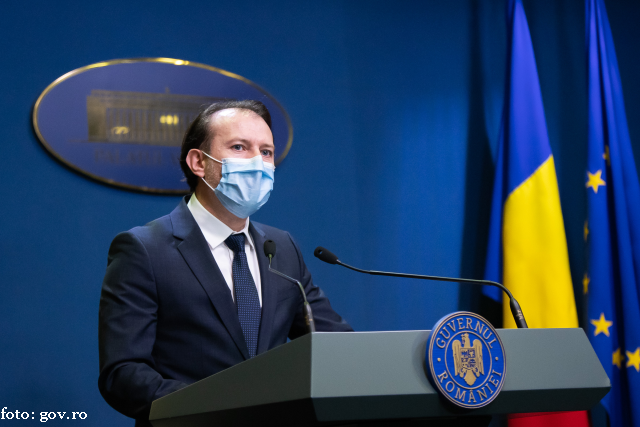Bucharest Government takes new financial and economic measures
The decisions of Romania s new Government have already been contested by trade unions.

Bogdan Matei, 29.12.2020, 14:00
A former Finance Minister, Romania’s new PM, the Liberal Florin Citu, started its mandate with decisions focused on figures, that will hopefully help the country overcome the predictable economic crisis triggered by the pandemic. According to a draft emergency order, launched for public debate on Monday evening, the public servants’ salaries will not be modified in 2021 and the value of bonuses will stay at its level in 2020. The so-called special pensions of mayors will be suspended all throughout next year.
The government, made up by representatives of the National Liberal Party (PNL), the USR – PLUS alliance and the Democratic Union of Ethnic Hungarians in Romania (UDMR) promises to extend the support granted to the employees and companies affected by the pandemic. All these measures have a considerable financial impact and must be taken into account in the drafting of the 2021 budget.
The budget for next year will be based on a 7% deficit of the GDP and will carry out, until June 30, the support programmes initiated this year, such as the subsidy granted to employees for the period when their individual labour contracts are suspended and supporting employers by covering 41.5% of the gross salary of the staff they keep. PM Citu has also announced a support package for the hospitality industry and travel agencies and the further granting of holiday vouchers in order to stimulate tourism in the country.
Government sources have also said that next year’s budget provides for a 10% increase in child allowances, starting January 1, and by another 10% as of August 1st. Irrespective of how generous they may seem, these measures do not answer all societal expectations. The new government may soon be faced with trade union protests, less than a week after taking over its prerogatives.
One of the largest trade union confederations, Cartel Alfa, voiced its disapproval with an only 15-euro increase in the minimum gross salary. This is an amount which the PM says it will help preserve jobs, but which trade union leaders deem too small to even cover the cost of protective masks.
In their opinion, this measure announces a new austerity policy, which puts the costs of the economic crisis on the shoulders of workers and the poor. Another important trade union confederation, Blocul National Sindical, sees the amount proposed by the government as a compromise solution, given that there is a very big number of employees who receive the minimum salary. Commentators however, do not see the trade unionists’ fears as ungrounded. Starting January 1, when the energy market is liberalised, the price of energy will increase by up to 26%, triggering a general increase in prices. (Translated by Elena Enache)






























